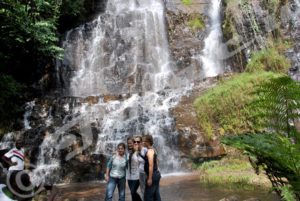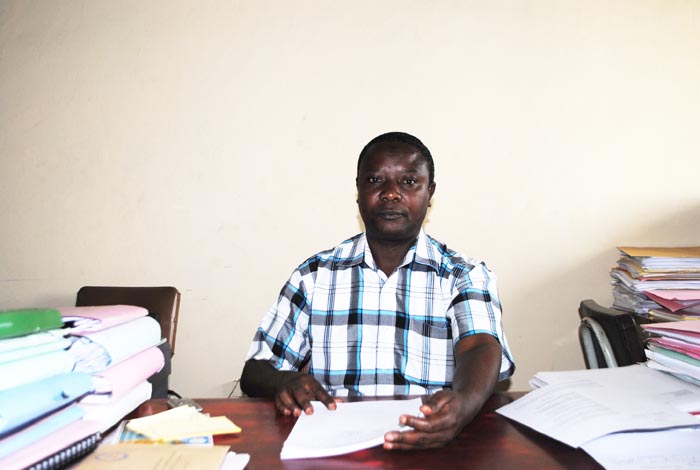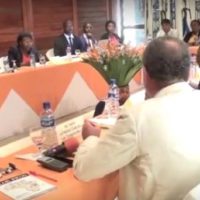
Tourists posing for a picture at Karera waterfalls (Rutana, south-eastern Province)
Actors in Burundi tourism acknowledge that the sector has alarmingly declined following the crisis that has plagued the country since last year. “Tourism has extremely declined over the last months”, says Denis Nshimirimana, the president of the Chamber of Hotel and Tourism. He explains that many hotels have laid off at least 50% of their workers. Some have even closed parts of their facilities to curb the loss in fixed expenses. A case in point is Hotel des Vacances which had at least 245 employees before the crisis, but now more than 100 have been laid off. The permanent secretary of the Ministry of Commerce and Tourism, Samson Ndayisenga, emphasizes that the sector has known a serious downturn: “The number of tourists visiting our country has remarkably dropped”.
Nshimirimana points out that the decline differentially affects hotels in Bujumbura the capital and hotels elsewhere in the country. He explains: “the hotel sector outside Bujumbura is doing just fine because, while Bujumbura relies on clients from abroad especially supervisors of projects funded by foreign sponsors of whom many have retreated, Burundi citizens constitute the majority of customers for hotels outside Bujumbura”.
However, he is optimistic and proposes the following ways to save the sector because he believes it is possible.
First and foremost, the government should make it easy for prospective visitors to obtain visas by overturning the ban on visa issuance on their arrival at Bujumbura international airport or on the borders. That prohibition, he argues, discourages visa applicants because procedures take too long. The problem is worsened by the fact that Burundi has foreign representation only in few countries. In the same way, the government should introduce an electronic visa system, encourage intra-regional tourism by adopting a biometric identity card valid throughout the EAC region and implement the EAC unique visa policy.
Burundi should design a tourism marketing policy. Nshimirimana draws the attention to the absence of a marketing endeavour in the tourism sector. For him, Burundi embassies and other foreign representations and people sent on missions overseas are a great asset to attract foreigners to the country using tourist brochures for example.
He also proposes a shift to ecotourism. “When we talk about tourism, we think about parks, lions, leopards like in Tanzania”, he says. “Our country is a beautiful garden, we should change our national tourism marketing strategy to attract people to come and visit our natural areas”, he adds.
In addition, he suggests that investing in tourism facility development near attraction sites can help boost the tourism industry. He also urges Burundians to discover and come to know the attraction sites of their own country.
“Burundians, including high officials, general managers, ministers, and other high authorities don’t visit the national sights. How can we advertise for what we don’t know?”, he wonders. Finally, he exhorts Burundians to stop giving a negative image of their country to foreigners because it discourages visitors.
Nshimirimana underlines the importance of tourism in helping Burundi build up foreign currency reserves which are now almost exhausted because of the current crisis.
Secretary Ndayisenga says that the ministry has already undertaken some of the solutions put forward by Nshimirimana. He says that an effort is being made to change the country’s negative image using the internet, civic education and tourist brochures handed over by people sent on missions abroad. Moreover, he says, the government is looking into the adoption of the EAC unique visa system.


















 IWACU Open Data
IWACU Open Data

